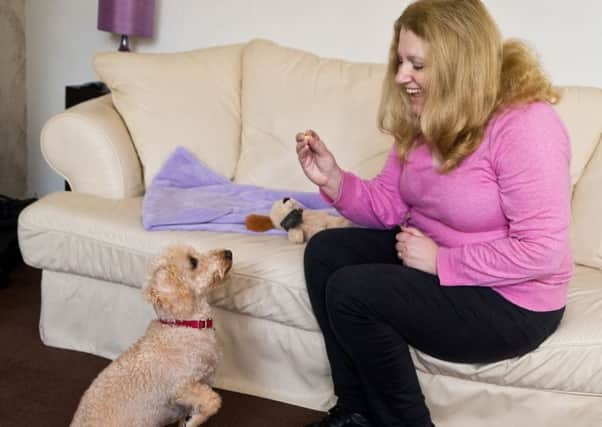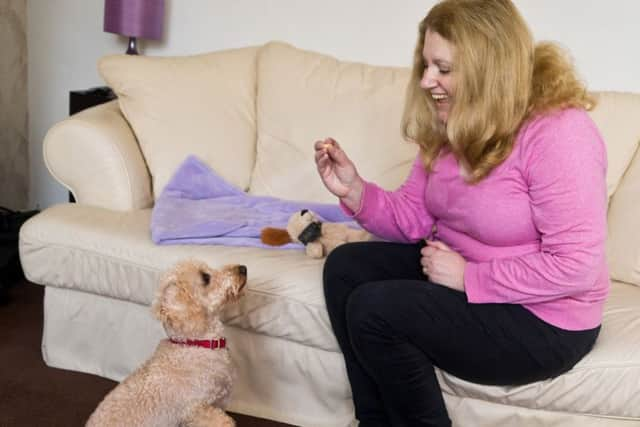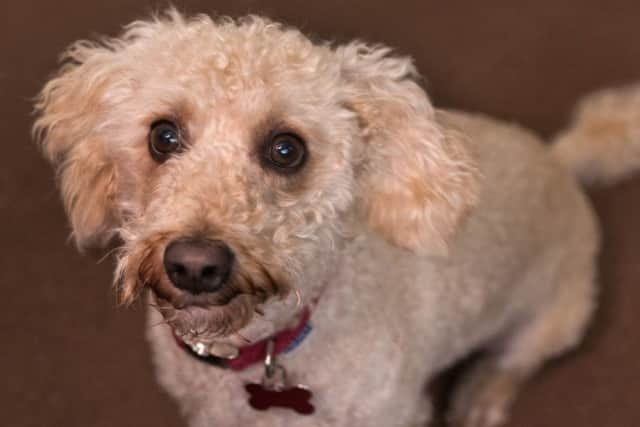Hartlepool trainer's top 10 tips for handling badly-behaved dogs


Dog behaviourist Jo Banks works with owners of animals that are driving them barking mad to turn their pets into placid pups.
Jo, known as The Dog Lady, provides one to one training in their own homes to see what the problem is and offer advice on how to turn things around quickly.


Advertisement
Hide AdAdvertisement
Hide AdShe said: “There has been a sharp rise in dog bites and problems with dogs and I just want to share information to help.
“A lot of people who got dogs for Christmas and have now had their inoculations.
“I am finding I am getting quite a lot of phone calls from owners asking for help recently. I offer one to one advice in their home seeing how the dog behaves in it’s natural environment.”
Hospital admissions for injuries caused by dogs rose 76% in 10 years up to 2015 according to official figures.


Jo says she is getting great feedback from grateful owners.
Advertisement
Hide AdAdvertisement
Hide AdThe Mail joined her on a visit to Jan Wright’s home, in Dyke House, and her problematic five-year-old Poodle cross Jacob.
Walking Jacob has become a nightmare for Jan who has had him for two months.
She said: “He is a lovely dog. The main problem is he pulls at his lead when we are out walking and he is aggressive when we come across strangers.”


Jacob also barks like mad whenever anyone visits the home.
Jo showed Jan how to assert herself over Jacob’s naughty behaviour by firmly saying ‘no’ when he gets out of line and giving a harmless squirt of water.
Advertisement
Hide AdAdvertisement
Hide AdShe reckons Jacob’s bad behaviour could be put right in as little as a week.
Here are Jo’s top 10 tips:


1. Tell people what you are doing, so they can help you with the exercises.
2. Have the right tools – a simple lead, rattle, water spray, treats and a create a quiet area for your pet for when they misbehave.
3. Focus on the positive, lavish attention and emphasise stroking when your dog behaves well.
Advertisement
Hide AdAdvertisement
Hide Ad4. Be the leader of the pack. Dogs need to know their role in the family, and once it knows where it fits in it will not be so anxious.
5. Communicate with hand gestures, eye contact, simple commands which everyone who is in everyday contact with the dog should say. By repeating words like ‘walk nice’ in a firm, calm voice he will soon associate the words with the action.
6. React immediately. Have a treat ready when he does something good, not 5 minutes later.
7. Time-out. When your dog has been disrespectful – even if only in a small way - you need to act immediately so it understands. Say firmly ‘No. Bad boy’ then point to its quiet area, where it can go for a short time until it has become calm.
Advertisement
Hide AdAdvertisement
Hide Ad8. Don’t hold grudges, move on. Focus on the positive and remember, they all make mistakes while they’re learning.
9. Spend quality time, simply bonding with your pet. If, for example, you are walking your dog and texting at the same time, it will see your interest is elsewhere want to investigate. Be interesting and fun!
10. Don’t think you have the worst dog in the world. Every dog is unique, however the one thing they all share is the need to be part of the pack. Just like children, the more time you spend with them the better your relationship and the stronger the bond.